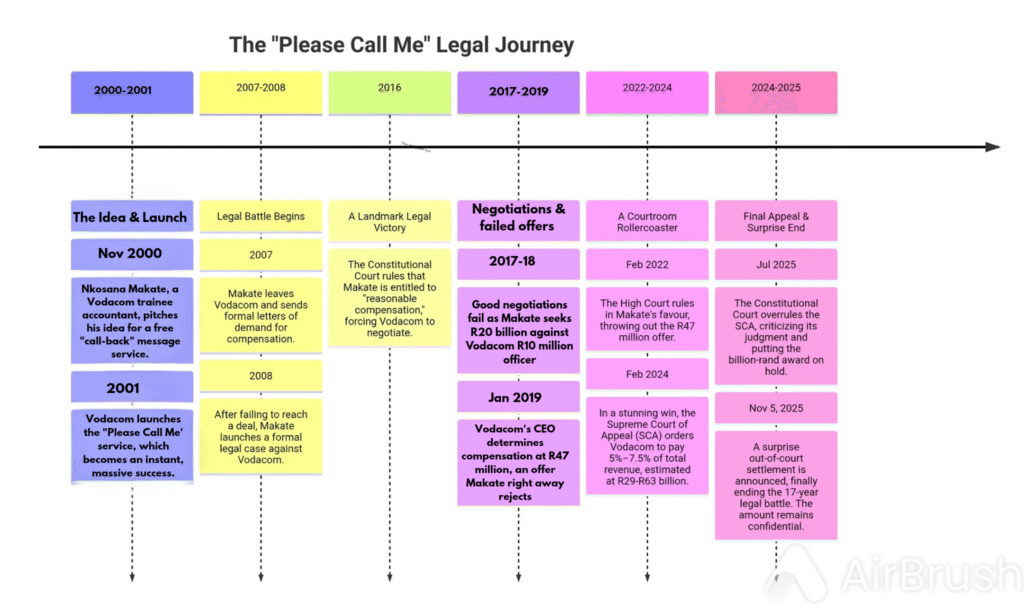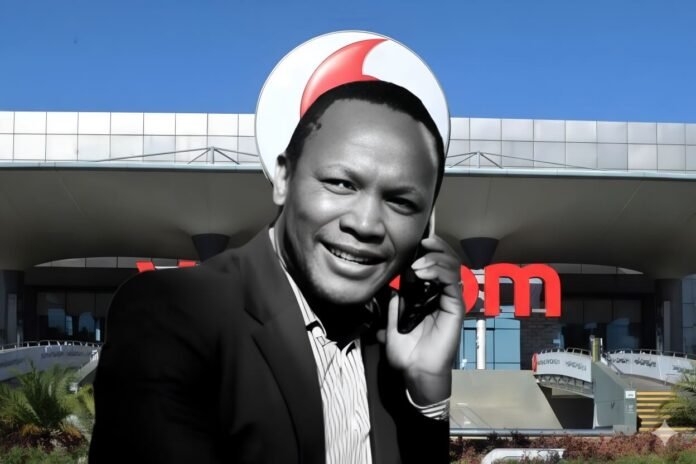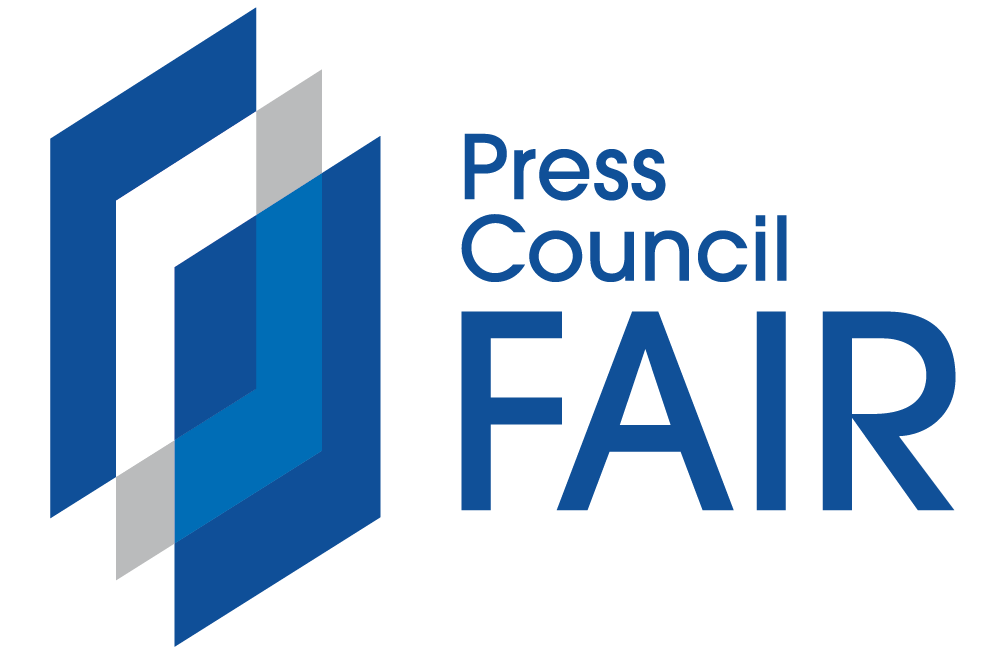After nearly two decades of courtroom battles, Vodacom has officially settled its dispute with former employee Nkosana Makate, the inventor of the famous “Please Call Me” service — a feature that changed mobile communication in Africa.
The telecommunications giant confirmed on Wednesday that it had reached an out-of-court settlement, bringing to an end one of the most drawn-out and symbolic legal fights in South African history.
“The parties are glad that finality has been reached in this regard,” Vodacom said in a statement to shareholders on the Johannesburg Stock Exchange.
Key takeaways
- Battle over: The historic 17-year legal war between ‘Please Call Me’ inventor Nkosana Makate and Vodacom is officially over.
- Secret deal: Vodacom’s board has approved a confidential out-of-court settlement, finalizing the dispute.
- Makate’s win: In a major victory, Vodacom has withdrawn its latest appeal against him.
- Mystery sum: The final settlement amount remains a tightly kept secret, though it will appear in Vodacom’s financial reports.
- The origin: The battle began in 2001 when Makate, a young trainee, invented the free “Please Call Me” service and was promised compensation that never came.
- Long road: The case went all the way to the Constitutional Court, which ruled Makate must be fairly compensatd, leading to years of failed negotiations over the amount.
- Legacy: The case is widely regarded as a milestone for intellectual property and corporate accountability in South Africa
The agreement, approved by the Vodacom board on November 4, 2025, ensures that the company’s appeal before the Supreme Court of Appeal (SCA) has been officially withdrawn, marking a decisive victory for Makate after 17 years of legal persistence.
The mystery of the settlement amount
While Vodacom has not disclosed the settlement figure, it will be reflected in its upcoming financial results for the six months ending September 30, 2025.
Makate had previously rejected Vodacom’s R47 million offer, demanding a fairer sum that reflected the service’s massive success. This wasn’t just a hunch, as NOWinSA previously reported, the Supreme Court of Appeal had formally ruled that Vodacom should pay Makate a handsome percentage of the total voice revenue, which at one point pointed to a potential sum between R29 billion and R55 billion. This was based on a 5%–7.5% share of the revenue the “Please Call Me” generated over 18 years.
How it all began
Back in 2001, Makate — then a Vodacom trainee accountant — proposed the idea of a “call-back” text message service to help users without airtime stay connected. His superior at Vodacom’s product division agreed to test it and promised compensation if the idea succeeded.
The service became a runaway hit, generating millions of interactions daily and cementing Vodacom’s market dominance. Yet, Makate never received payment — prompting him to sue Vodacom in 2008.
Court battles that made history
The case journeyed through the High Court, Supreme Court of Appeal, and finally the Constitutional Court, which ruled in Makate’s favour and instructed Vodacom to negotiate fair compensation.

However, after years of negotiations, Vodacom maintained that Makate’s claim was excessive, while Makate argued the company had profited immensely from his idea. The Constitutional Court later found flaws in the SCA’s judgment, as detailed in its official 2025 ruling, noting “a failure of justice” in how compensation was calculated.
Now, with Vodacom withdrawing its case, the matter is finally closed — and a new chapter begins for intellectual property law in South Africa.
For deeper legal insight, see Juta’s full analysis of the case’s intellectual property implications.
A symbol beyond the Courts
Makate’s win has become more than a personal victory — it’s a symbol of perseverance, fairness, and innovation in the face of corporate resistance.
Across South Africa and abroad, the news has been met with celebration and reflection on what it means for employees who contribute ideas that shape billion-rand industries.
For Vodacom, this marks both an ending and a fresh start. The company, which has evolved into a digital and financial services powerhouse, now turns the page on one of its most controversial chapters.
Legal and business implications
- For companies: The case reinforces the need for transparent innovation policies and fair recognition of employee contributions.
- For employees: It sets a precedent — ideas born within companies still deserve equitable reward.
- For the courts: It illustrates how South African law continues to evolve to protect intellectual property in the digital age.
Ultimately, the settlement underscores a simple truth: justice, though delayed, has finally been served.


